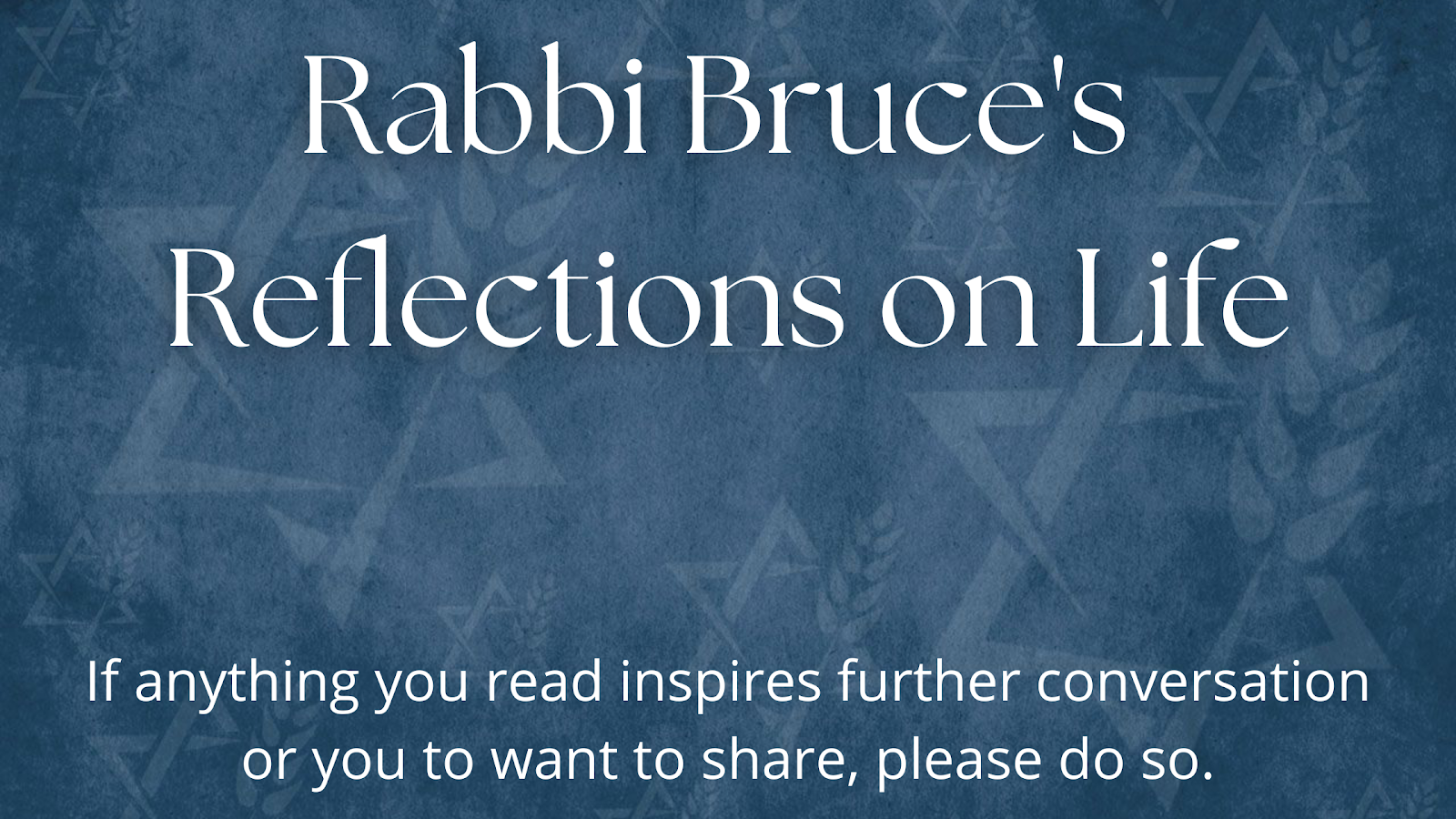A Sukkot Message about Dreams, Wandering, and Fulfillment
Dear Friends,
As we celebrate Sukkot my wife and I put up our Sukkah (temporary dwelling) for the first time since before Covid.
As we sat in the Sukkah yesterday, I was reflecting upon the custom of ushpizin. Ushpizin is an Aramaic word that means invited guests. One invites people who are meaningful to them and has a conversation with them. The people are living or deceased and hopefully these discussions remind people about what was important to them.
I was thinking about the theme of wandering since the Sukkah reminds us of the temporary dwelling places that the Israelites built in the wilderness while they were wandering during Biblical times. One of the songs that my parents used to listen to when I was younger is called, "I Was Born Under a Wandering Star" from Paint Your Wagon.
I was born under a wandrin' starI was born under a wandrin' starWheels are made for rollin'Mules are made to packI've never seen a sight that didn't look better looking back
I was born under a wandrin' starMud can make you prisoner, and the plains can bake you drySnow can burn your eyes, but only people make you cryHome is made for comin' from, for dreams of goin' toWhich with any luck will never come trueI was born under a wandrin' starI was born under a wandrin' star
Do I know where hell is?Hell is in helloHeaven is goodbye for ever, it's time for me to goI was born under a wandrin' starA wandrin' wandrin' star
When I get to heaven tie me to a treeOr I'll begin to roam, and soon you know where I will beI was born under a wandrin' starA wandrin' wandrin' star
I have often wondered why my parents liked this song. It raised questions about people, dreams, and the power of nostalgic memory to make past experiences seem so much better.
The following line makes me think about whether or not if we had fulfilled the dreams we had when we were younger, we would have been happier or more content. It makes me think about our family history of wandering from Eastern Europe to Canada to the United States. It makes me wonder where my ancestors felt home. I think about whether they would think their dreams had come true.
Which with any luck will never come true
I also hope that as we think about connecting to the wisdom of our loved ones, that we will think about how our lives might have changed if we had lived the lives we envisioned when we were younger. Perhaps some of us have realized those dreams and perhaps it is better for some of us to have had unfulfilled dreams. On a beautiful day when I pitch in my adult baseball league, I think about what might have been if I had continued my dream to become a professional baseball player. Perhaps having spent over 40 years as a rabbi is the dream that truly made a difference but the doubts linger about what might have been. I will write more about this next week in a Yizkor (memorial) column as we conclude Sukkot.
Finally, when my wife and I were married, the violinist played "Que Sera Sera, what will be will be.(See lyrics below) I hope that as we wander through Sukkot, we can find faith that indeed, what will be will be.
Chag Sukkot Sameach, Happy Sukkot.
Rabbi Bruce Aft
Que será, será lyrics (Doris Day)
When I was just a little girl,
I asked my mother, “What will I be?”
“Will I be pretty, will I be rich?”
Here’s what she said to me:
Que será, será,
Whatever will be, will be
The future’s not ours to see
Que será, será,
What will be, will be.
When I grew up and fell in love
I asked my sweetheart what lies ahead:
“Will we have rainbows, day after day?”
Here’s what my sweetheart said:
Que será, será,
Whatever will be, will be
The future’s not ours to see
Que será, será,
What will be, will be.
Now, I have children of my own
They ask their mother, “What will I be?”
“Will I be handsome, will I be rich?”
I tell them tenderly:
Que será, será,
Whatever will be, will be.
The future’s not ours to see
Que será, será,
What will be, will be.

Comments
Post a Comment